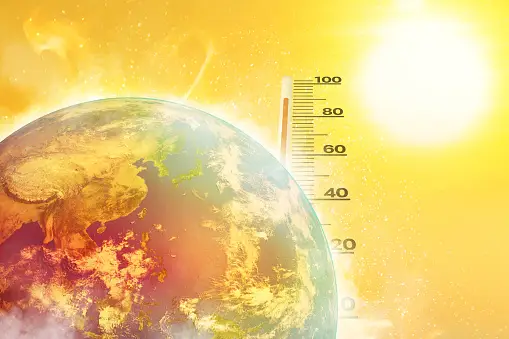
In today’s times global warming is increasing at a very quick pace from the melting glaciers and increasing temperatures around the world. Such immense climate disruption gives no room for future geopolitical strains that could impede rapid collective efforts which could affect the international security and co-operation worldwide.
During 2021, a UN body called Intergovernmental Panel on Climate Change published its summary report on the impacts of global warming. Report shows that there is more likely probability that global warming will be exceeding 1.5 °C in the current century and brings considerable and non-balanced dangers affecting both natural and manmade facilities. In particular, the report notes that if the world temperature increases by up to two degrees centigrade, many parts of populations of Asia and Africa will receive aggravated exposure and vulnerability to poverty.
To help combat this, a team of expertise coming from developed countries should come up with sustainable finance instruments, innovations in clean energy, that will help in disaster response. At the same time, developing countries have important information about local resilient agriculture and models of community self-organisation that is needed in adaptation to climate shocks, and this information could help other parts of the country that are vulnerable to poverty due to climate change.
Likewise, treating climate mitigation as a battleground on which nationalist gains come through may result in self-destruction. Climate change should be viewed as a non–zero-sum game among nations. In this case, however, the crisis needs an unparalleled collaboration among countries as well as sharing of resources and knowledge on a global scale to be able to mitigate the disastrous repercussions.
However, no single country has enough technical, diplomatic, and humanitarian capacity to undertake a large-scale operation of climate adaptation and reducing emissions at a fast pace. Without the collective efforts of countries with different but complementary strengths, the world is at least just on the brink of climate catastrophe. Obviously, notions of power balancing in the traditional political sense are entirely irrelevant in the existence of a limit set on cumulative global carbon emissions consistent with 1.5 degrees. Nationalism is not about survival by co-operative progress and not competition.
The blurred lines between security and development make it difficult to view climate change as if it were confined to a specific area. They are the focal points of insecurity arising out of the vulnerabilities due to climate change effects like crop failure and scarcity of water. Through common efforts to fight climate as a root cause of instability world countries should recognize that sustainable growth represents the main pillar of global safety.
Consequently, these far-reaching implications necessitate multi-literalism as a matter of urgency. Climate change has no national borders, and therefore requires joint, combined efforts. The international institutions like the United Nations have to transform into a meeting point for cooperation whereby geo politic issues are discarded in order to sustain the earth. Global climate change only succeeds in reality if countries have abandoned narrow interests but chosen common goals about saving world for the best future.
In conclusion, climate change affects all aspects of our globalised society in different levels which leads to exposing the potential consequences for international security and co-operation relations. The urgency of global warming situation implies to change in perspective regarding to matters of security affairs among nations, development matters and general diplomatic relations. The international community should address these uncharted waters with clear vision that will lead to a shared responsibility, working together, and a total commitment towards a sustainable world free of climate change. When taking this step, the necessity of working together is not simply an opportunity but a mandatory alternative.
By The European Institute for International Law and International Relations
References
Lazarou, E., & Tothova, L. (2022). Climate Change Considerations for EU Security and Defence Policy. Briefing PE, 729.














